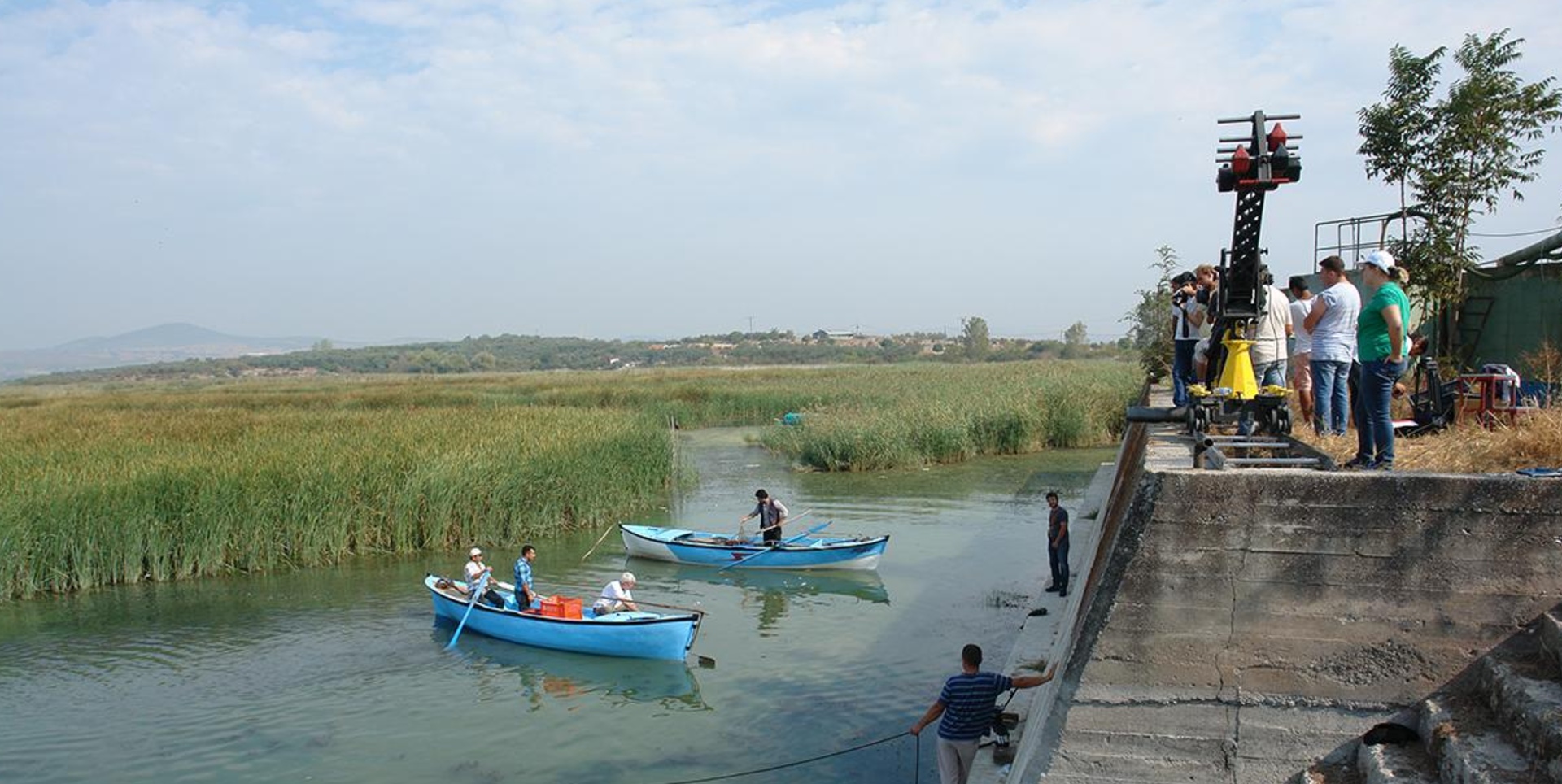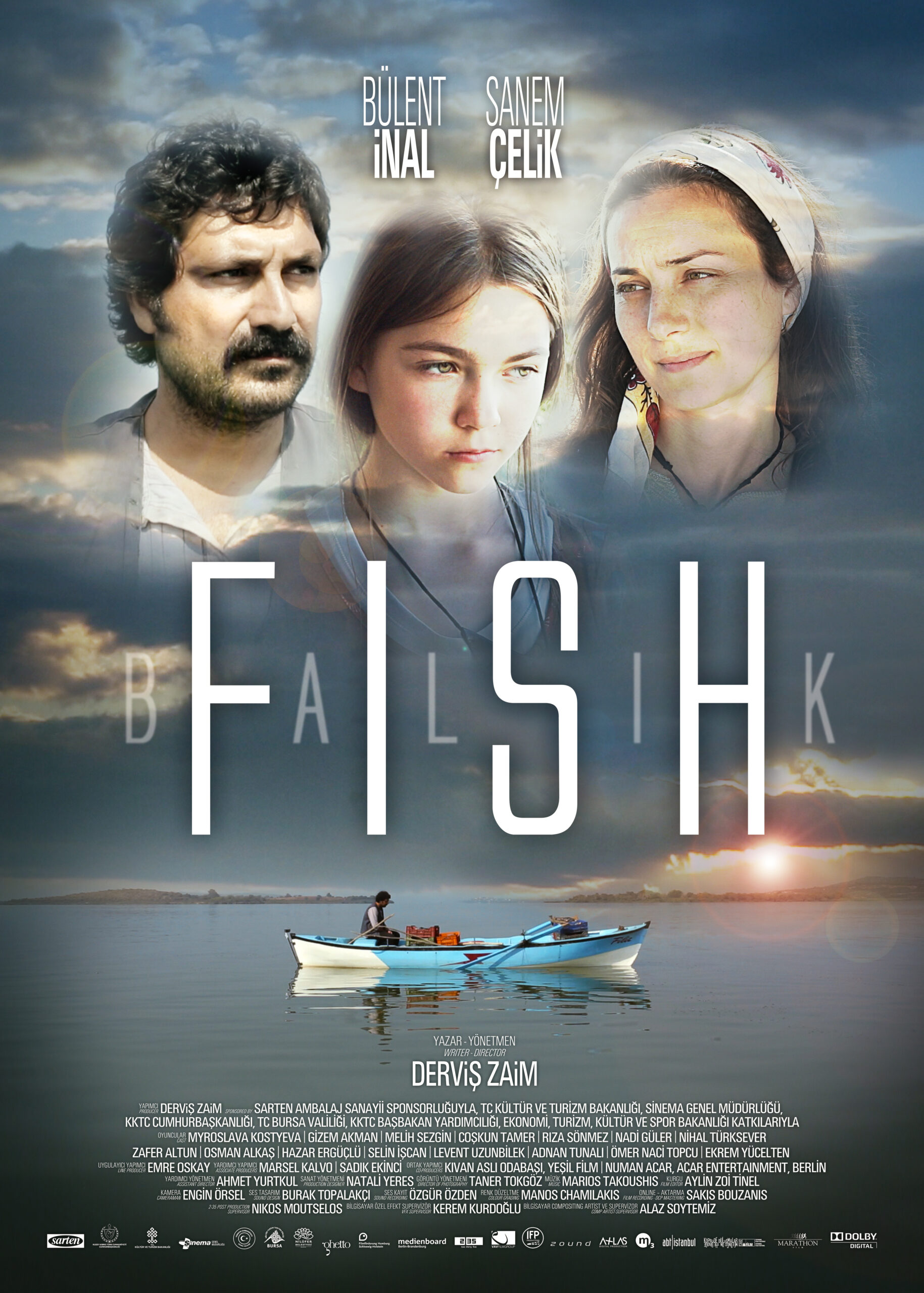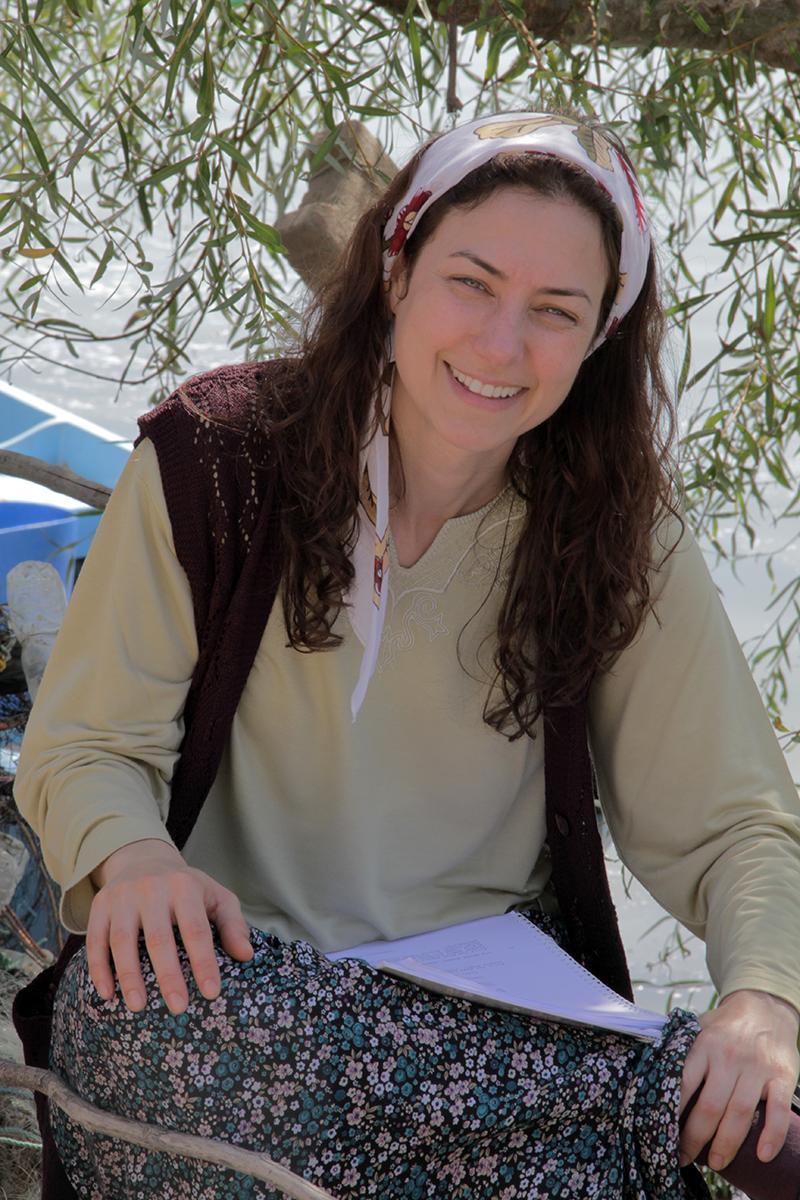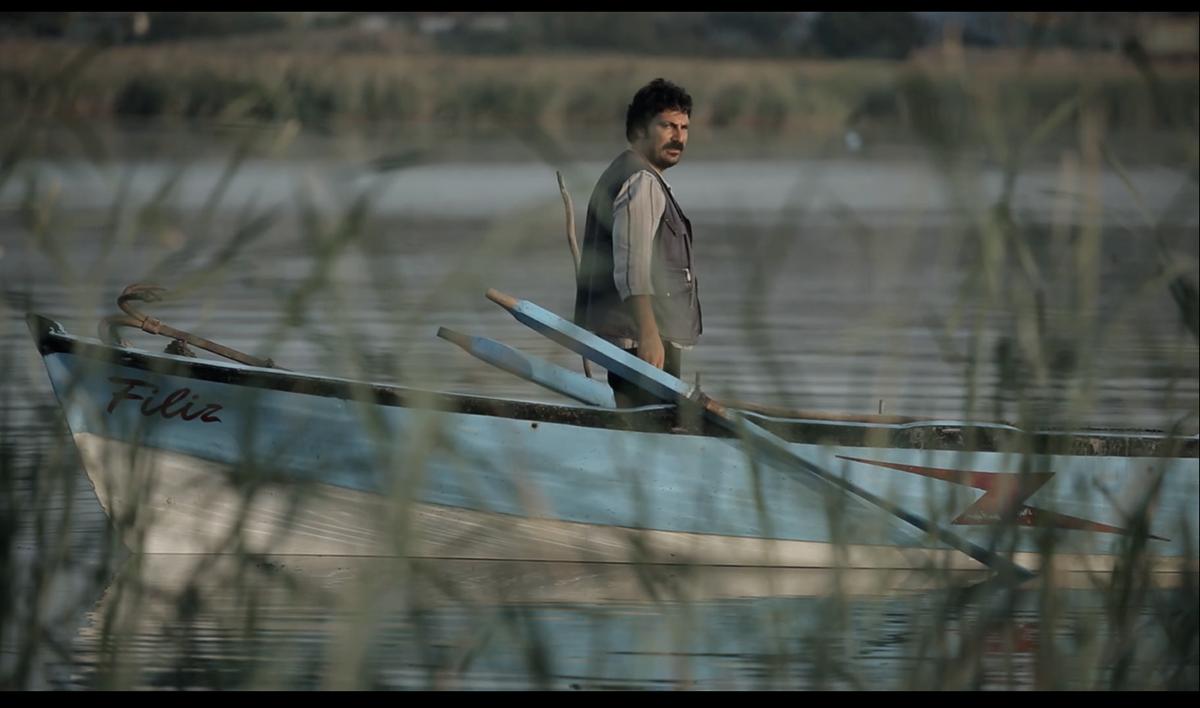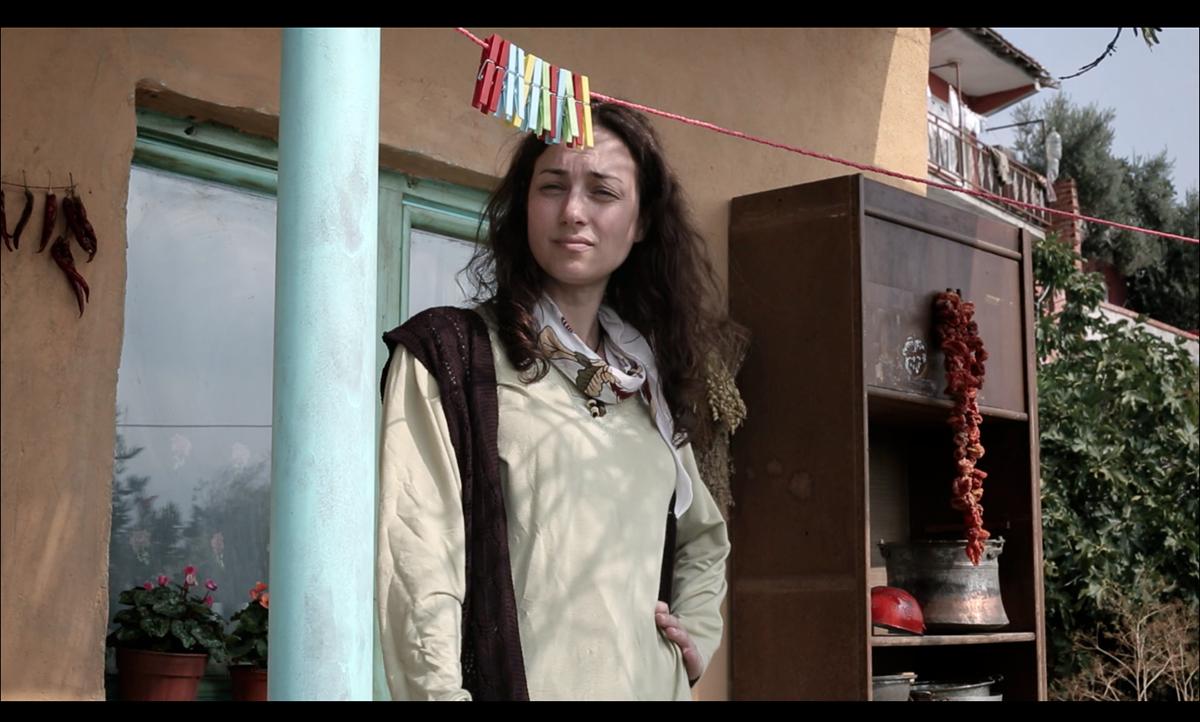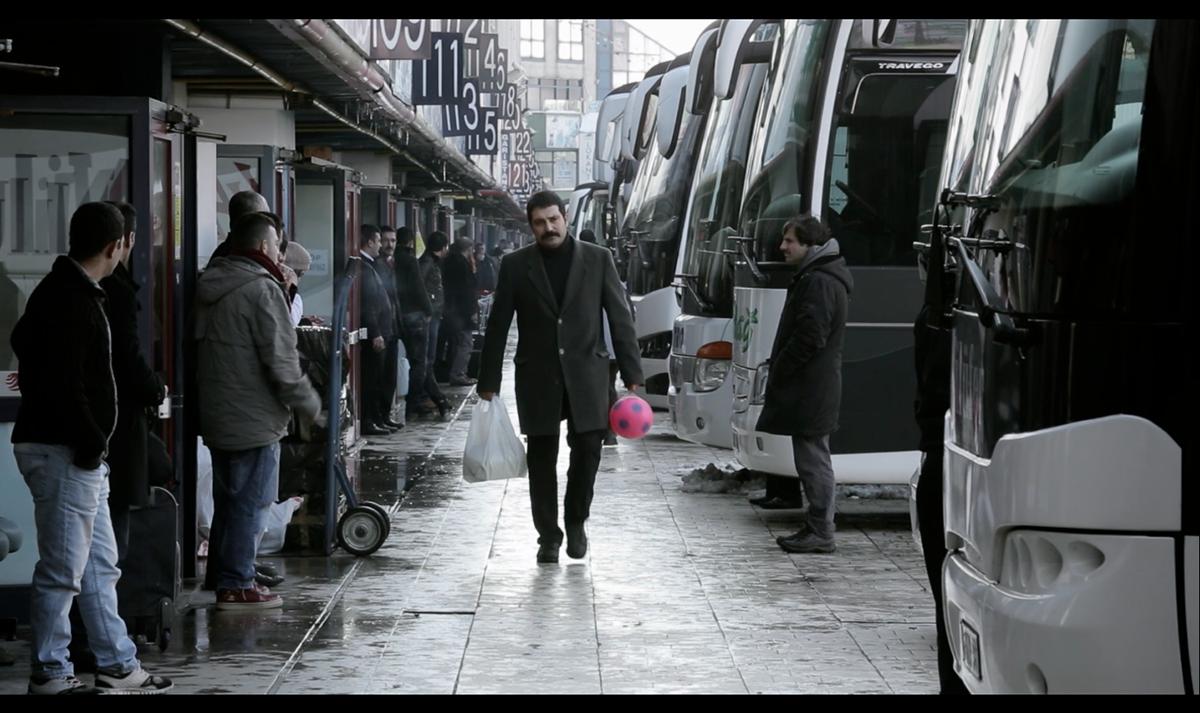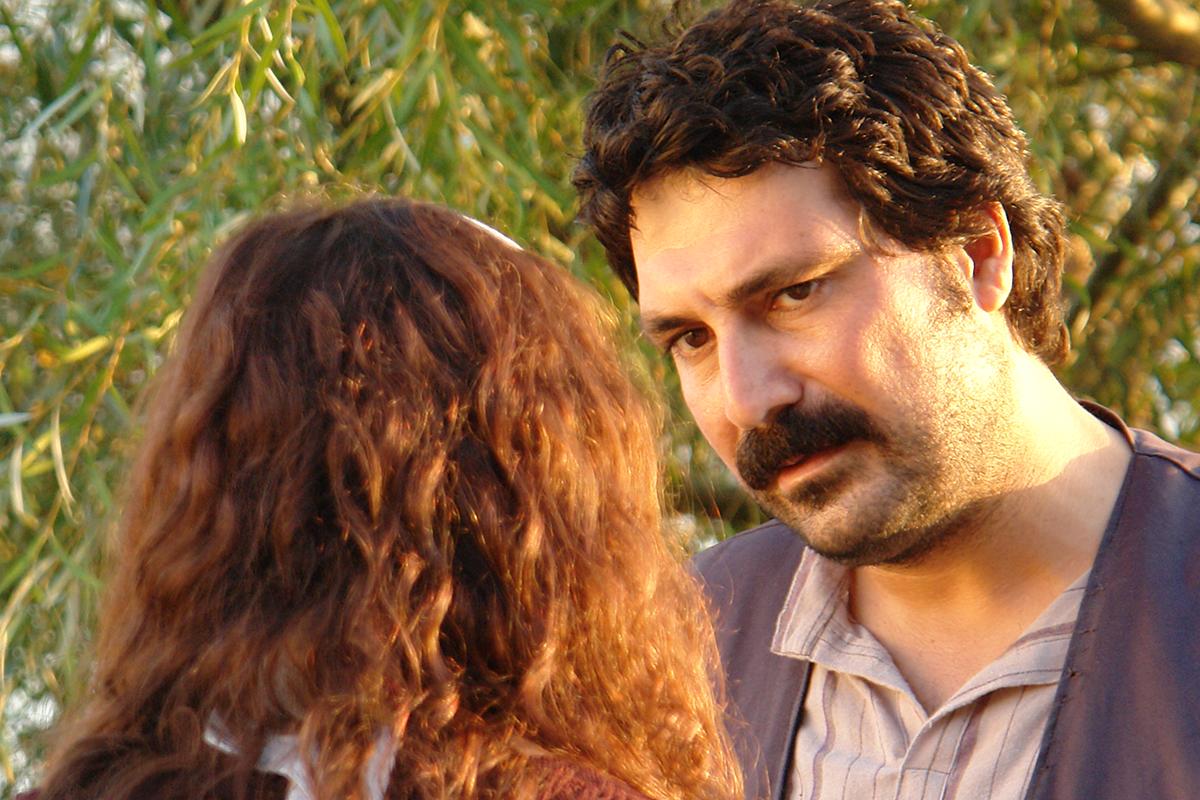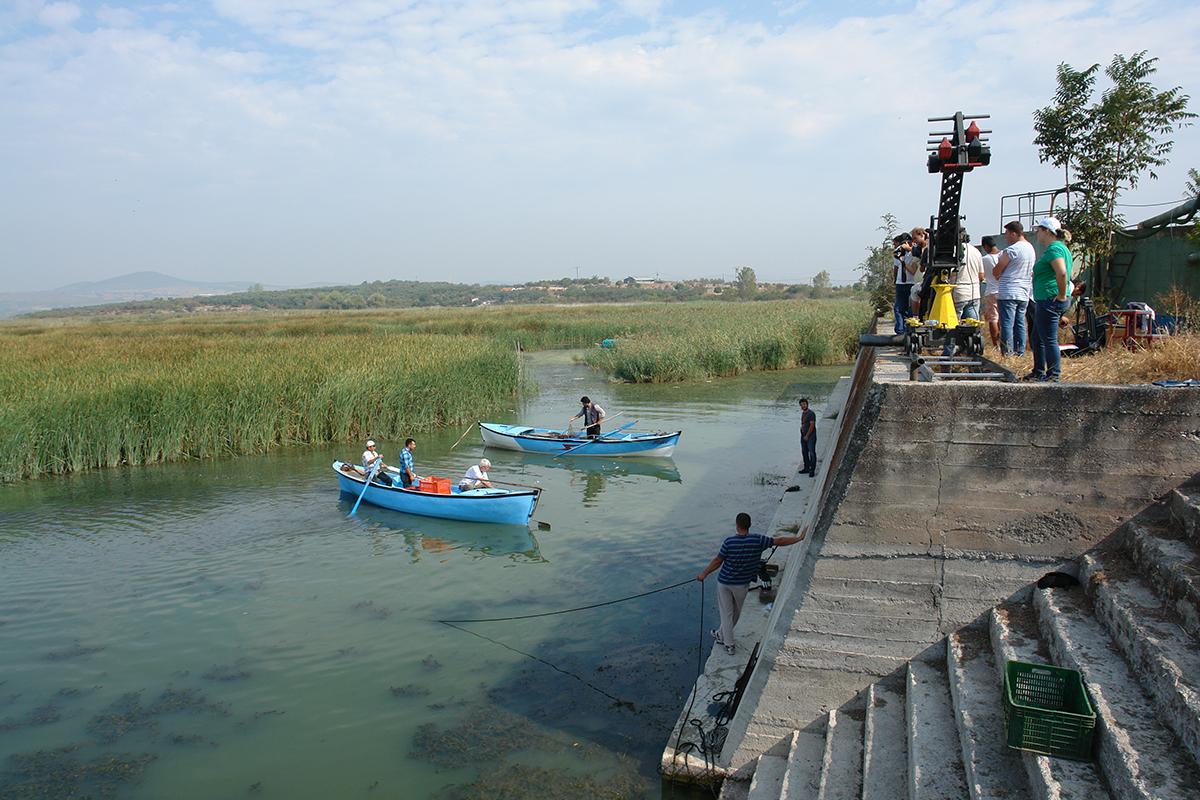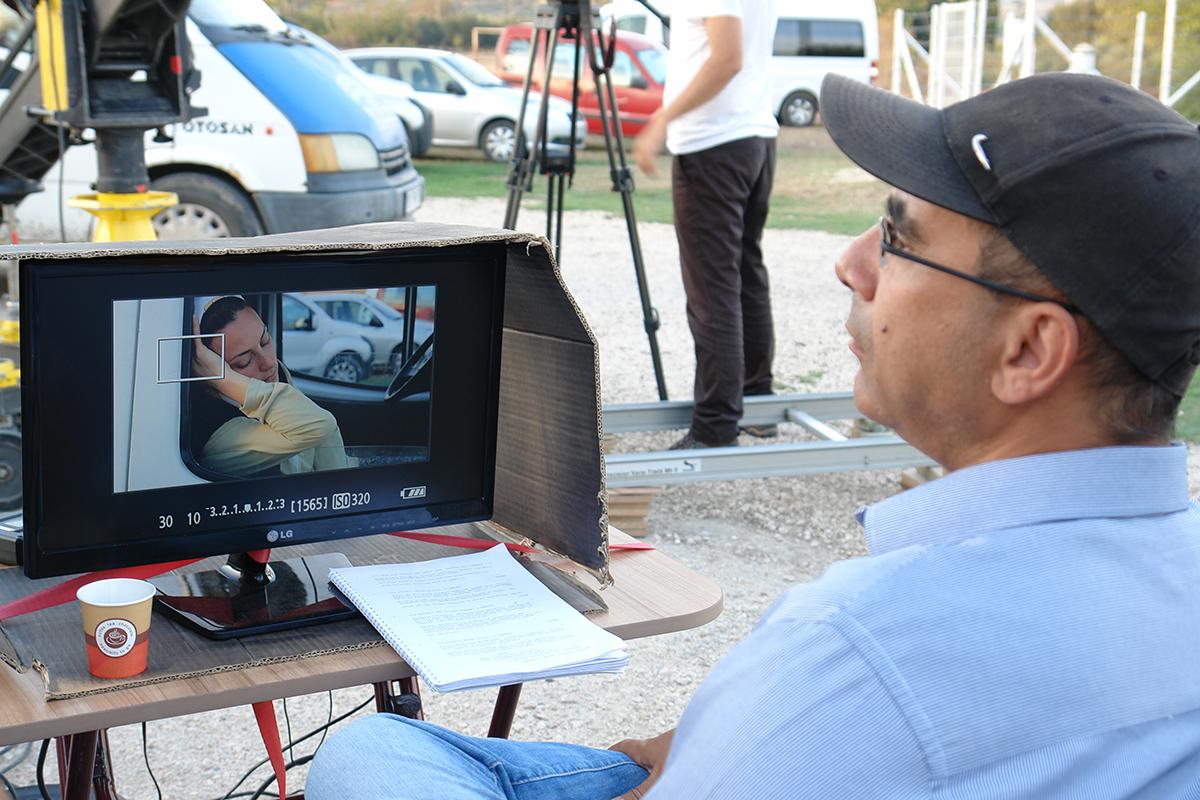Synopsis:
Kaya, a fisherman, lives with his wife, Filiz, in a village on the shores of a lake. They have a young daughter, Deniz, who is unable to speak. In search of a cure for Deniz, Filiz decides to try an ancient alternative remedy. She thinks that feeding the girl a breed of fish believed to be medicinal will heal her disorder. The trouble is, the fish is no longer to be found in the village lake. Filiz sets off for another lake to find it. In the end, she catches eight of the rare fish and starts feeding them to her daughter.
When he discovers the fish at home, Kaya has the idea of farming them commercially in the hope of making some money. To make a few preliminary inquiries, he takes a few of the fish to the aquaculture faculty in town, but doesn’t tell his wife. He asks the faculty staff for advice in how to breed the fish. To set up a fish farm, however, he needs money he doesn’t have. And to resolve this, he starts fishing illegally with chemicals. But one day, ambition in using the chemical mix leads him to fatally poison his wife, Filiz, and he ends up in jail for homicide.
On release from prison, Kaya returns to the village. He transforms to a new person and wants to be forgiven by his daughter.
Longer Synopsis:
Kaya, a fisherman, lives with his wife, Filiz, in a village on the shores of a lake. They have a young daughter, Deniz, who is unable to speak. In search of a cure for Deniz, Filiz decides to try an ancient alternative remedy. She thinks that feeding the girl a breed of fish believed to be medicinal will heal her disorder. The trouble is, the fish is no longer to be found in the village lake. Filiz sets off for another lake to find it. In the end, she catches eight of the rare fish and starts feeding them to her daughter.
When he discovers the fish at home, Kaya has the idea of farming them commercially in the hope of making some money. To make a few preliminary inquiries, he takes a few of the fish to the aquaculture faculty in town, but doesn’t tell his wife. He asks the faculty staff for advice in how to breed the fish. To set up a fish farm, however, he needs money he doesn’t have. And to resolve this, he starts fishing illegally with chemicals. But one day, ambition in using the chemical mix leads him to fatally poison his wife, Filiz, and he ends up in jail for homicide.
On release from prison, Kaya returns to the village. He goes with his daughter to visit Filiz’s grave. Deniz takes along the last of the healing fish given to her by her mother. Her real motive is to show her mother that she’s kept her side of their pact before Filiz died, she gave Deniz the last of the fish to keep as a pet and promised to buy her a big present if she managed to keep the fish alive. For the first time ever, Deniz speaks at her mother’s grave and calls her father to account. Kaya is completely bowled over to hear Deniz’s first words.
In the shock of the moment, they leave the fish behind at the cemetery. By the time they remember, the fish has frozen to death in the bitter cold of winter. Kaya sets off on an impossible endeavour to find another fish of the same breed, which is thought to be extinct. At the last minute, he remembers the fish he dropped off at the aquaculture faculty months earlier. He goes to the faculty, finds the fish and brings them back to his daughter. Kaya has transformed into a new person…
Director’s Note:
BALIK (FISH) is a project which sets out to address the question of whether there is still a way for humanity to build a more meaningful relationship with nature and other fellow humans. There is also an aspect to the film which intimates that, in this day and age, the idea of building meaningful, genuine and liberating relationships with nature and fellow humans is organically linked to the process of connecting with oneself in a similarly positive way. In this sense, Fish aspires to bring to mind those elements of human nature which are too often left to atrophy. Clearly, however, the project also advocates maintaining a sense of realism, knowing that to do otherwise, and to be lured by things unrealistic carries greater risks than ever before.
Based on this philosophy, I believe that, as a project which aims through its subtext to encourage the human virtues of creating utopias, but at the same time of being realistic, the film has a liberating quality to it. Freedom and conscience are among the themes I have explored in my other films. And these same themes also have a place in this project.
Another point I wish to emphasize is that in this project, Fish, I set out to experiment with narrative structure and language. This approach is driven by the motive to develop a fresher, richer and more original cinematic language. Indeed, the idea of creating a difference is one of the possible ways of describing the motivations of the project.


